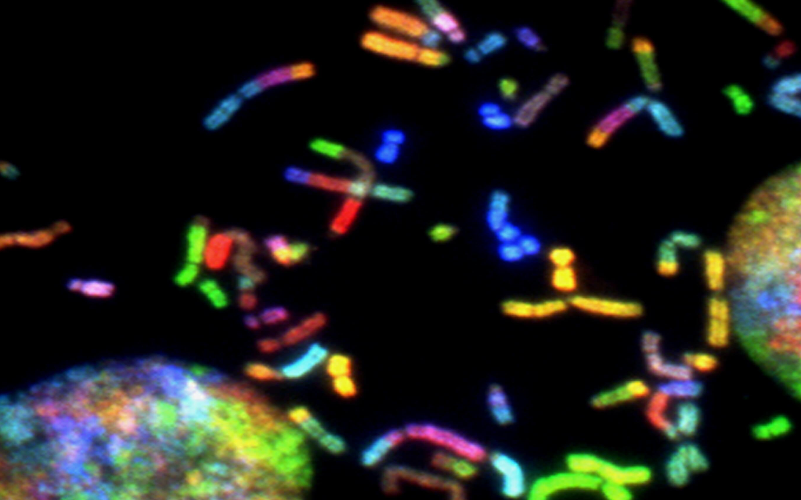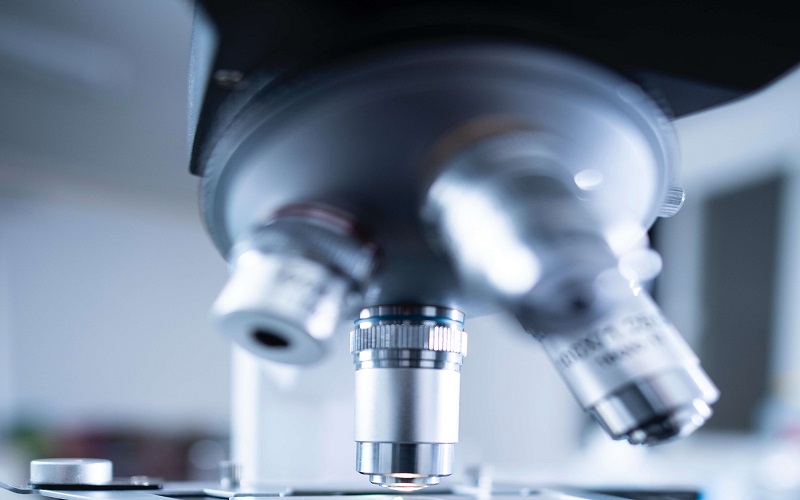Precision Healthcare

Regenerative treatment may offer a cure for incontinence patients
A Guardian interview with Professor Richard Day forms part of a national Bladder & Bowel campaign.

Study testing UCL designed medical device launches
A study assessing the safety of an innovative medical device invented by a UCL researcher as a potential treatment for perianal fistulas has launched at UCLH.

Health Secretary asked to evaluate role of gut microbiome in coronavirus
Richard Day is among the scientists to have signed a letter to the Health Secretary urging officials to investigate a link between coronavirus and a bad diet (2020).
Our work
The Day Lab has a sustained track record in the creation and application of new technology applied to regenerative medicine. This spans invention, development, public engagement, clinical translation, and commercialisation.
Notable achievements include:
- Pioneering clinical translation of a novel class III medical device, consisting of a biomaterial developed by the group, into an MHRA approved Phase I/IIb trial (UCL's first regulated trial for a novel biomaterial).
- The EU-funded AMELIE project, UCL’s largest, most ambitious translational tissue engineering study to date comprising of a UCL invented tissue engineered product to be investigated in a clinical trial involving patients from six European countries.
- Bowel and Bladder Health
Muscle Regeneration for Incontinence
Incontinence is a significant unmet clinical need. Cell therapy offers a promising solution to restoring the function of muscles that provide continence. Early clinical studies have reported mixed results, with some studies showing no improvement in muscle function. This is likely due to the cells being delivered in a sub-optimal condition due to their manipulation outside the body and delivery as a suspension, an unnatural state for a muscle cell. To address this, we are developing highly porous biodegradable TIPS microcarriers that are used as a substrate to grow patients' own muscle progenitor cells (myoblasts) in vitro, before delivering them, still anchored to microcarriers, into the defective muscle. The microcarriers are designed to slowly degrade as the myoblasts integrate with the host muscle, forming new functional tissue that will restore continence. We are evaluating the beneficial effects of delivering cells attached to the microcarriers compared with conventional delivery methods.
People involved:
- Professor Richard Day
- Dr Alex Popov
- Dr Francesco Saverio Tedesco (UCL Division of Biosciences)
- Dr Daniel Stuckey (UCL Division of Medicine)
- Professor Charles Knowles (Queen Mary University London)
A Novel Medical Device for Fistula Repair
Fistulas are abnormal connections between two epithelialized surfaces e.g., blood vessels, bladder, intestines, or other hollow organs. The goal of fistula surgery is to close the fistula whilst trying to avoid damage to the surrounding tissue. A range of materials have been used to fill fistulas in an attempt to promote healing but all of these have failed because the material becomes dislodged and falls out or results in an infection. We are developing novel highly porous microspheres to overcome this problem. When packed into a fistula the microspheres provide a 'scaffold' that cells can easily grow between and into. As the microspheres slowly dissolve, they are replaced by new tissue.
Funding from the Wellcome Trust has enabled GMP scale-up of our manufacturing process and testing of the microspheres as a class III medical device (the highest classification for a medical device covering high-risk products that require the greatest level of assessment) in phase I/II first-in-man clinical safety study at UCLH. The microspheres are UCL's first biomaterial for regenerative medicine granted approval for clinical use in a regulated device trial by the Medicines and Healthcare Products Regulatory Agency (MHRA).
People involved:
- Professor Richard Day
- Dr Dan Fullen (UCL Translational Research Officer)
- Mr James Crosbie (University College London Hospital)
- Dr David Brealey (University College London Hospital)
- Dr Rachel Evans (University College London Hospital)
- Professor Charles Knowles (Queen Mary University London)
- Cardiovascular Disease
Investigating the Influence of Hierarchical Topographical Features on Angiogenesis
This multifaceted programme of research is funded by the British Heart Foundation and involves investigating novel biomaterial-based approaches for therapeutic angiogenesis. The unique surface topography of biodegradable and biocompatible TIPS microparticles is being utilized for its angiogenic potential, both alone and in combination with cells including mesenchymal stromal cells and pericytes. If successful, the novel approach could be used as a curative treatment for life-threatening diseases such as coronary heart disease and peripheral arterial disease.
People involved:
- Professor Richard Day
- Dr Charikleia Simitzi
- Dr Caroline Pellet-Many (Royal Veterinary College)
- Professor Paolo Madeddu (Section of Regenerative Medicine, University of Bristol)
Redefining iPSC-Derived Cardiomyocyte Delivery using a Pro-Survival Substrate
Ischaemic heart disease is a global health issue. Myocardial ischaemia is of particular significance, resulting in the irreversible and extensive loss of cardiomyocytes. Cell therapy provides a potential therapy for cardiac muscle regeneration and various teams around the world are attempting to utilise cell-based strategies for this purpose. However, loss of cell viability and retention of cells following delivery into the myocardium poses a significant challenge that risks reducing potency of the therapy.
This BHF-funded project is a collaboration with Dr Sanjay Sinha's lab at the University of Cambridge and builds on preliminary studies that show TIPS microparticles provide a potential substrate for attachment and growth of cardiomyocytes derived from induced pluripotent stem cells (iPSC). The aim of the project is to investigate the use of TIPS microparticles for targeted delivery of iPSC-derived cardiomyocytes into cardiac tissue to improve cell viability and engraftment for myocardial regeneration.
People involved:
- Professor Richard Day
- Annalisa Bettini
- Dr Daniel Stuckey, UCL Division of Medicine
- Dr Maria Colzani (Anne McLaren Laboratory, Cambridge Stem Cell Institute, University of Cambridge)
- Dr Sanjay Sinha (Anne McLaren Laboratory, Cambridge Stem Cell Institute, University of Cambridge)
- Cell Delivery
Minimally invasive cell delivery
We have an extensive research programme investigating the use of TIPS microspheres for cell expansion and targeted, minimally invasive delivery for cell therapy purposes.
Harnessing the cell secretome
We are interested in the use of biomaterials for the control and targeted delivery of the cell secretome. We are particularly interested in how this effect can be utilized for the delivery of angiogenic growth factors to treat cardiovascular disease.
Magnetic cell delivery
We have developed a novel cell seeding device for large hollow organs that consists of a Halbach array of magnets. The magnets attract cells loaded with magnetic nanoparticles towards the surface of the hollow scaffold and hold them in place until they have adhered to the substrate surface. This process can deliver cells more uniformly and efficiently to the surface of scaffolds compared with traditional cell seeding methods that involve rolling or rotating the scaffold.
Building on this concept, and with funding from the UK Engineering & Physical Sciences Research Council and EPSRC Centre for Innovative Manufacturing in Regenerative Medicine, we have invented a magnetic cell seeding device compatible with hollow organ bioreactors.
- Characterising the Immune Response
Inflammation and the associated immune response are central to the host's defence against infection. They are also implicated in diverse states ranging from atherosclerosis to cancer, and an increasingly common and important target for therapeutic modulation. Inter-individual variance in response to noxious challenges (e.g. pathogens and trauma) and frequently employed drugs, likely contributes to disease states such as sepsis and immune dysfunction following major surgery. Despite this, we are yet to fully characterize and integrate patients' immunophenotypes into their care, or monitor immune competence in the clinical setting.
Using experimental models in healthy volunteers and samples taken from patients undergoing surgery, we are exploring the molecular and biochemical pathways that underlie immune variance and dysfunction. We are additionally seeking to develop new techniques, methods and tools to quantify leukocyte functionality. We hope this will lead to personalized medicine strategies that improve outcomes in the critically ill and perioperative populations amongst others.
People involved:
- Dr James Fullerton
- Joao Oliveira
- Professor Richard Day
- Combating Microbial Resistance
Antibiotic resistance poses a catastrophic risk to human health. Novel approaches that provide alternatives to antibiotics for combating infection are urgently sought. Re-evaluation of existing small molecules with well-established disinfectant properties, especially in terms of optimizing their mode of delivery, could offer an accelerated pathway to the clinic for a range of new therapeutic products. Reactive oxygen species, such as hydrogen peroxide, are effective microbicidal agents but, as with any medicinal product, are also capable of causing significant non-specific tissue damage if delivered in an uncontrolled manner.
This industry-funded project aims to validate the novel antimicrobial strategy centred on the targeted and controlled release of reactive oxygen species and other oxidizing agents via TIPS microparticle technology. It will investigate whether the strategy is effective in pre-clinical models that mimic typical clinical scenarios of infection.
People involved:
- Professor Richard Day
- AGA Nanotech Ltd
- Drug Delivery
Cancer Therapy
Prostate cancer is a leading cause of mortality in men. About 9,000 men undergo radical prostatectomy every year in the UK with 10-20% requiring adjuvant or salvage (radiation) therapy or systemic chemotherapy. Failure can occur because cancer cells are shed during surgery, incomplete excision or metastatic disease. Adjuvant or salvage therapy confers additional harm through collateral damage to the bladder, urethra and rectum whilst systemic therapy confers toxicity related to chemotherapy effects.
We propose a novel approach that combines surgery with precise delivery of anti-cancer cytotoxic therapy immediately after prostate removal. This will be achieved through a unique combination of degradable microparticles loaded with a chemotherapy drug. The microparticles will elute the drug in a controlled manner to target cancer cells potentially shed during surgery, whilst avoiding collateral tissue damage associated with systemic delivery.
This Cancer Research UK-funded project will investigate combining docetaxel, a clinically approved anti-neoplastic drug, with a new class III implantable scaffold consisting of TIPS microparticles validated for clinical use. This approach is novel and potentially transformative.
People involved:
- Professor Richard Day
- Professor Hashim Ahmed (Imperial College London)
Developing Nanogel Drug Delivery Systems
Intrapericardial drug delivery is an uncommon route where drugs are administered directly into the pericardium, a bi-layered sac surrounding the heart that possesses several physiological functions. The space enclosed by the pericardium (known as the intrapericardial space) contains about 20-40 mL of fluid. Owing to its proximity to the myocardium and slow clearance, this space could be employed for the delivery of cardioprotective agents to treat myocardial infarction. The project will combine advances in polymer engineering and nanotechnology to engineer a formulation system that can deliver cardioprotective drugs to the infarcted myocardium via the intrapericardial space.
This EPSRC-funded project will utilize established processing technology to produce polymer-based nanocarriers that contain cardioprotective agents for intrapericardial administration. Release of the cargo will be dictated by degradation of the polymer and/or diffusion, which can be moderately refined depending on the molecular mass of the polymer, particle size, shape and porosity.
In addition to ischaemic heart disease, it is anticipated that the new technology will be applicable to other diseases where the controlled release of drugs will be beneficial.
People involved:
- Mr Kenneth Ho
- Professor Richard Day
- Professor Duncan Craig (UCL School of Pharmacy)
- Immunotherapy
TIPS Microparticles for Adoptive T-Cell Therapy
This project investigates a novel approach for adoptive T cell therapy that involves using biodegradable, biocompatible TIPS microparticles to stimulate a targeted, tumour-specific effector response and expansion of T cells in the immunosuppressive tumour microenvironment. If successful, the proposed technology will provide a step-change for adoptive cell therapy by improving tumour immunity and reducing the risk of toxicities that arise from on-target/off-tumour cross reactivity. The project involves the functionalisation of TIPS particles with azide groups necessary for Strain-Promoted Azide-Alkyne Cycloaddition (SPAAC) that will enable the conjugation of antibody fragments to the surface of solid PLGA particles.
People involved:
- Professor Richard Day
- Dr Vijay Chudasama (UCL Department of Chemistry)
- Mr João Carlos Nogueira (UCL Department of Chemistry)
Artificial Lymph Nodes for Ex Vivo T Cell Activation
This BBSRC-funded PhD project involves designing materials to control immune cell behaviour. In particular, the project explores integrating engineering principles with immunology to create biomaterials that can quantitatively control T-cell activation and expansion. Towards this goal, the project is investigating how immune cells respond to biophysical and biochemical cues over different time and length scales. It is hoped insights gained from these studies can be used to improve adoptive T-cell therapy both in terms of cost-effectiveness and processing.
People involved:
- Professor Richard Day
- Prof Marc-Olivier Coppens (UCL Chemical Engineering)
- Magnetic Actuation
We are investigating the use of magnetic field gradients to manipulate the position and behaviour of cells in the body. This involves either loading cells with nanoparticles of iron that are susceptible to an externally applied oscillating magnetic field or introducing magnetic material into the extracellular environment. Both approaches can be used to deliver different amounts of strain to cells that can be used to provide a biological stimulus.
We have built a series of magnetic actuator devices that we are using in conjunction with mathematical modelling to explore how the delivery of a magnetic field gradient influences the phenotype of cells.
The research offers tremendous opportunities for a variety of healthcare applications, ranging from the targeted delivery of stem cells for tissue engineering to the conditioning of damaged or degenerated muscle groups.People involved:
- Professor Richard Day
- Professor Quentin Pankhurst
TIPS Microspheres
We have developed an innovative platform technology consisting of highly porous microspheres produced via thermally induced phase separation (TIPS), which offers a system for the localized delivery of advanced therapeutic medicinal products and an excellent substrate for cell attachment and tissue integration.

Our experts: the Day Lab
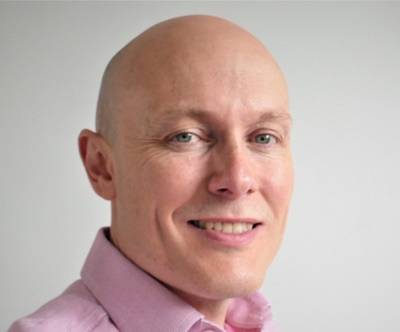
Prof. Richard Day
Professor, Regenerative Medicine Technology
Principal Investigator
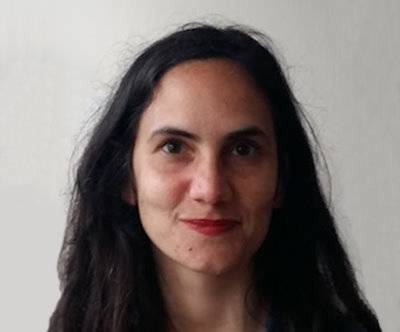
Dr Chara Simitzi
UCL Dept. Mechnical Engineering
Post-Doctoral Scientist

Dr Charlotte Desprez
University of Rouen
Clinician Scientist
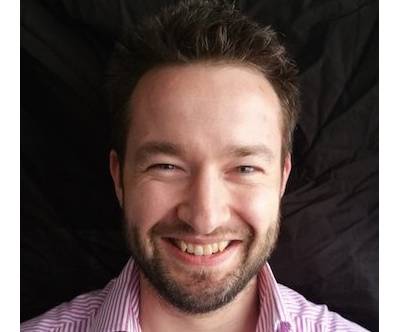
Dr James Fullerton
University of Oxford
Clinician Scientist
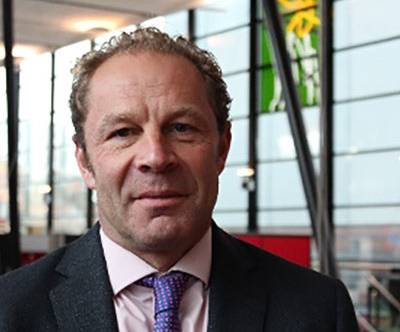
Prof. Charles Knowles
Professor of Surgery, Barts Health NHS Trust
Clinician Scientist
PhD students
- Mar Ester Casajuana
- Dr William English (UCL & Cleveland Clinic London)
- Julia Linke
- Benjamin Murray
- Joao Oliveira
- Haowei Wang
- Yingying Gu (UCL Division of Surgery and Interventional Sciences)
- Yiting Wu
Former members
- Dr Raheleh Ahmadi
- Dr Yani Angelopoulos
- Dr Annalisa Bettini
- Dr Jonny Blaker
- Dr Matthew Chin
- Dr Charles Craddock
- Dr Francesco Di Maggio
- Dr Tuula Eriksson (UCL Eastman Dental Institute)
- Dr Ian Evans
- Dr Hanif Ghanbar (UCL Department of Mechanical Engineering)
- Dr Iya Goubareva
- Dr Pauline Guhmann
- Dr Eseelle Hendow
- Dr Kenneth Ho
- Dr Zalike Keskin (UCL Eastman Dental Institute)
- Dr Hussila Keshaw
- Dr Keith Lau (UCL Department of Mechanical Engineering)
- Dr Bryony McCord
- Dr Abbie Omolu
- Dr Ketevan Paliashvili
- Dr Nina Parmar
- Dr Alex Popov
- Dr Jaspal Puri
- Dr Manoochehr Rasekh (UCL Department of Mechanical Engineering)
- Dr Panagiotis Sofokleous
- Dr Charikleia Simitzi
- Dr Omaer Syed (Eastman Dental Institute)
- Dr Bernice Wright
Publications
- Casajuana ME, Day RM (2023) Production and Utility of Extracellular Vesicles with 3D Culture Methods. Pharmaceutics.
- Desprez C, Danovi D, Knowles CH, Day RM (2022) Cell Shape Characteristics of Human Skeletal Muscle Cells as a Predictor of Myogenic COmpetency: A New Paradigm Towards Precision Cell Therapy. Journal of Tissue Engineering.
- Ho HMK, Day RM, Craig DQM et al. (2022) An Analytical Quality by Design Approach Towards a Simple and Novel HPLC-UV Methods for Quantification of the Antifibrotic Peptide N-acetl-seryl-apartyl-lysyl-proline. Analytical Biochemistry.
- Ho HMK, Day RM, Craig DQM. (2022) Design of Experiment Approach to Modelling the Effects of Formulation and Drug Loading on the Structure and Properties of Therapeutic Nanogels. Mol Pharm.
- Hendow EK, Day RM (2021) The Significance of Biomechanics and Scaffold Structure for Bladder Tissue Engineering. Int. J. Mol. Sci.
- Keskin-Erdogan Z, Patel KD, Chau DYS, Day RM et al. (2021) Utilisation of GelMA with Phosphate Glass Fibres for Glial Cell Alignment. Journal of Biomedical Materials Research.
- Ho HMK, Craig DQM, Day RM. (2021) Access Routes, Devices and Guidance Methods for Intrapericardial Delivery in Cardiac Conditions. Trends in Cardiovascular Medicine.
- Paliashvili K, Popov A, Ahmed HU, Day RM et al. (2020) Peritumoural Delivery of Docetaxel-TIPS Microparticles for Prostate Cancer Adjuvant Therapy. Advanced Therapeutics.
- Chin MHW, Coppens M.O, Day RM et al. (2020) A Hydrogel-Integrated Culture Device to Interrogate T-Cell Activation with Physicochemical Cues. ACS Applied Materials & Interfaces.
- Simitzi C, Keskin-Erdogan Z, Day RM et al. (2020) Modular Orthopaedic Tissue Engineering with Implantable Microcarriers and Canine Adipose-Derived Mesenchymal Stromal Cells. Frontiers in Bioengineering and Biotechnology.
Funding and partnerships

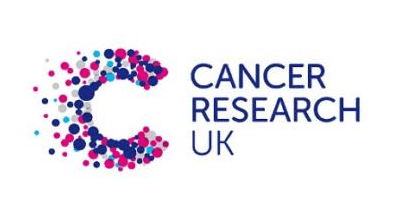
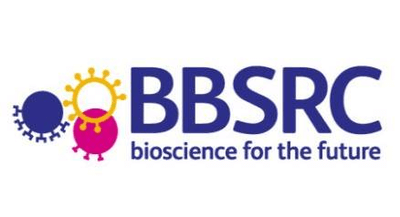
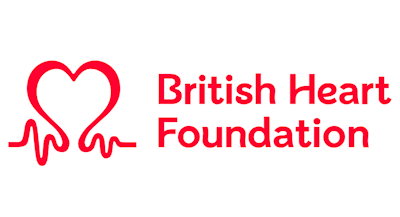
The group conducts internationally leading research supported by cross-disciplinary research collaborations with clinical, surgical, and nursing collaborations at the affiliated University College London Hospital, plus the following UCL faculties.
- Faculty of Engineering (Department of Mechanical Engineering)
- Faculty of Life Sciences (Division of Biosciences, School of Pharmacy)
- Faculty of Mathematical & Physical Sciences (Chemistry Department, Physics & Astronomy Department)
- Institute of Cardiovascular Science (The Hatter Cardiovascular Institute)
- Faculty of Medical Sciences (Eastman Dental Institute, Division of Surgery)
The group works closely with the UCL Translational Research Office, UCL Innovation & Enterprise, and UCL Business Ltd to facilitate clinical translation and commercialization of our exciting and innovative technology.
Related programmes
Contact Details
- Professor Richard Day (r.m.day@ucl.ac.uk)
- +44 (0)20 3108 2183
 Close
Close


